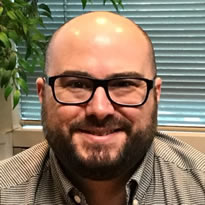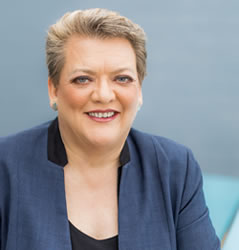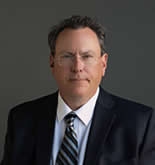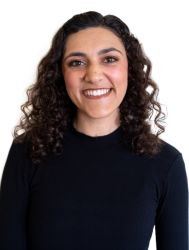The battle over Dr. Ben Zhao in Andersen v. Stability AI reveals pitfalls in choosing expert witnesses.
What if you’re a lawyer in a major AI-copyright litigation and you find the ideal expert witness, but the expert turns out to be an “activist” researcher focused on destroying the technology built by your opposition? How does his professional bias and lack of impartiality affect your case? What do you do with this allegedly ideal expert witness? We delve into this below. First, however, some background.
Presently, there are dozens of AI-copyright lawsuits in ongoing litigation. Mostly, I can't keep up with the lawsuits unless something pertinent grabs my attention as in this case, the battle over qualifying experts.
Luckily, I discovered Chat GPT Is Eating the World, by Professor of Law Ed Lee. Professor Lee keeps a “master list” of AI cases on his Substack. Technically, I was introduced to Professor Lee’s work when a friend sent me some posts related to expert witnesses in the case of Andersen v. Stability AI Ltd.
In the Andersen case, a fascinating dispute has emerged over the appointment of Dr. Ben Zhao as an expert witness.
The crux of the dispute is that plaintiffs want Dr. Ben Zhao to be their expert witness on “AI image generation” and more specifically "text to image" models. The defense largely agrees Dr. Zhao has the requisite expertise, but they do not want to give him access to their proprietary data (i.e. source code) because of his position on AI image generation LLMs (large language models). Dr. Zhao, in essence, is an activist researcher. It does make him biased against Stability AI. Does that bias prevent him acting as an expert in this matter? We’ll see.
Why Plaintiffs Want Dr. Zhao
The plaintiffs argue Dr. Zhao is indispensable due to his unparalleled expertise in artificial intelligence image generation. They assert his research on how generative AI models process and replicate copyrighted works is directly relevant to their claims of copyright infringement. Dr. Zhao’s credentials are impressive: over 190 published papers, 38,000 citations, and noted as one of Time’s 100 most influential people in AI in 2024. You can find more about the publications on Dr. Zhao’s curriculum vitae. In my experience, the Time recognition is the least compelling for an expert witness, but it is wonderful publicity for an expert.
According to the plaintiffs, his qualifications position him as: uniquely qualified to help the court and jury understand the technical nuances of their case. The plaintiffs emphasize that disqualifying Dr. Zhao would severely prejudice their ability to contest the defendants’ fair use arguments, as few independent experts of his caliber remain in this rapidly evolving field.
As an expert witness finder, I can tell you I don't buy this argument. Maybe I would have believed it 5-7 years ago, but much has changed. Furthermore, this is evidence that maybe he should not have been chosen as your “ideal” expert in the first place. The choice of an activist expert may have prejudiced the plaintiff’s case. I’m open, however, to counter arguments on what I think was a strategic failure in choosing an expert.
Why Defendants Oppose Dr. Zhao
The defendants, Stability AI and others, counter that Dr. Zhao’s involvement poses a significant conflict of interest. It really has to do with his own research and professional interests, rather than some competitive conflict (i.e. financial interest or work with a competing company). I differentiate this conflict from a competitive conflict, because that’s relatively common. Parties don’t want an expert who works for a competitor to have access to their trade secrets. Dr. Zhao is not a commercial competitor and is not working for a commercial competitor. His conflict is derived from his professional efforts and his bias against models such as those developed by Stability AI.
Defendants highlight his research focus on developing tools to “disrupt” or “poison” text-to-image generative models like those at issue in the case, citing project names like “Nightshade” and his forthcoming “Hemlock” paper. The defendants argue that providing Dr. Zhao access to their highly confidential LLM source code and training data would create an unacceptable risk, given his ongoing work to undermine similar AI systems. They contend that the plaintiffs have not demonstrated that Dr. Zhao is the only qualified expert available, pointing to a broader pool of AI researchers and even another expert proposed by the plaintiffs’ counsel in a related case (see article from Chat GPT is Eating the World).
Again, I agree with the defendants on this matter. There are other qualified experts who have not written about and created tools on topics of “data poisoning attacks,” for text-to-image generative models.
Key Considerations & Takeaways:
Let me be abundantly clear. I may be convinced that Dr. Zhao’s activist research is appropriate for the protection of copyrighted material. This article is not about attacking his research or his activism. It should serve as learning experience in expert selection and expert activism.
Based on my 15 years of professional experience locating and marketing expert witnesses, I believe the defendants make a more convincing argument. Lawfare is like warfare. You don't really want to give your enemy your secrets so that he can then use them to attack you. This concern outweighs any benefit from impeaching or undermining Dr. Zhao’s opinion based on his personal bias. In that same vein, the plaintiffs knew when choosing Dr. Zhao, that he was an activist expert interested in defeating or poisoning models like those created by defendants. Including Dr. Zhao as your expert practically guaranteed the defense would argue against his being qualified as an expert in the case.
Just because the expert appears ideal because they’re likely to give you the testimony you desire, does not mean they’re ideal. Strategy plays a role in this matter.
For lawyers, this case is a reminder to thoroughly vet experts for potential conflicts while anticipating opposing arguments about bias or other potential risks.
For expert witnesses, it highlights the importance of maintaining neutrality, credibility, and reputation, especially when working in fields where research may intersect with litigants’ interests.
This dispute underscores the balance courts must strike when evaluating expert witnesses in cutting-edge technology cases.
DO NOT REPRODUCE WITHOUT WRITTEN PERMISSION BY AUTHOR.











